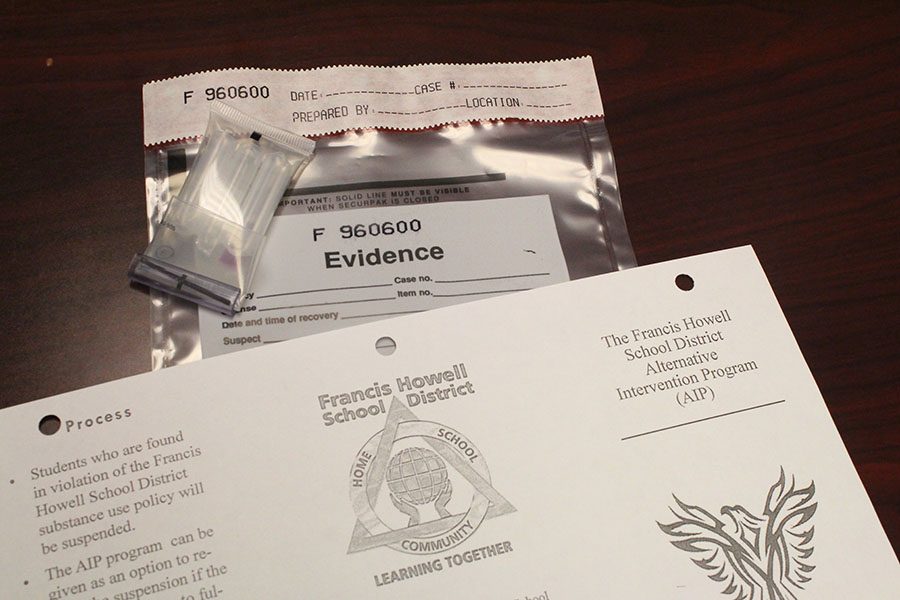FHSD New Drug Policy Pushes Students to Recovery
Published: October 3, 2019
At the beginning of the school year, the district introduced a new policy regarding the penalty for substance related offenses.
“What really happens is that kids are actually away from the building for 10 days, but they get all of their work while they’re over there at Union, they get additional support in terms of what they’re struggling with and then we’re able to bring them back a lot faster,” head principal Nathan Hostetler said. That’s good for the school district because that’s fewer days out, that helps our attendance rates. There are fewer mistakes, and kids aren’t falling behind this quickly.”
The previous policy stated that students in violation of the policy were suspended from the district’s schools for 10 days where they would later have a Committee on Conduct (COC) hearing where they would decide on an additional penalty depending on that student’s specific violation.
In the new policy, students who are under the influence or in possession of drugs on campus are suspended for one day and then go through Alternative Intervention Program (AIP) for the next nine days. The district is trying to center their attention towards helping students instead of reprimanding them by using AIP, which offers counseling under approval from parents or guardians. This program was created by the district for first time offenders and allow them to work through their problems with drugs and still be caught up with their studies at the same time.
“From there, working with the parents, we can determine, ‘What course of action does this student need? Is it outpatient? Is it inpatient? Is it day treatment?’” Robert Gaugh, the principal at FHU said. “There’s a whole bunch of different options, but that’s all worked out through Preferred Family Healthcare and the parents.”
FHU is a school known to help students make up credits, but it also serves the purpose of supporting students who struggle with drug related problems and other issues. The smaller classrooms have a more focused atmosphere for students to learn and receive the help that they need regarding their mental health and educational setbacks. The school isn’t directly involved with the help their students receive, however they do help with bridging the gap between students and their parents, and the people who can help with that student. Teens often resort to drugs to cope with other problems that they are dealing with, and AIP opens a space for students to work through some of those emotional struggles by teaching students coping skills as an alternative to substance abuse. A lot of students like how the policy is focusing on helping students quit rather than punishing them for their addiction.
“I feel like it’s better that they’re trying to help them,” Trent Clifton, a sophomore at FHN said. “Punishing them doesn’t really stop them or get them off of drugs.”
Although a lot of students approve of this change, some believe that it’s excessive compared to the old one. However the district is set on their goal of helping students instead of just punishing them.
“There are other kids that the road is a lot rougher and the rough part is a lot longer and that’s really tough to watch and , there’s some kids who just make a couple of really dumb decisions, get wrapped up in something, and then they’re able to move forward,” Hostetler said. “So we’re hoping to, with the idea here is to take on those kids with these really long, rough patches, and start to shortcut part of the journey.”






![FHN Holds Prom at Old Hickory Country Club [Photo Gallery]](https://FHNtoday.com/wp-content/uploads/2024/04/Brewer_stopmotion-9-300x200.jpg)
![FHN Students Watch the Solar Eclipse [Photo Gallery]](https://FHNtoday.com/wp-content/uploads/2024/04/4.8.24-solar-eclipse_-300x200.jpg)
![FHN Boys Varsity Volleyball Team Goes Against Troy [Photo Gallery]](https://FHNtoday.com/wp-content/uploads/2024/03/IMG_7545-300x200.jpg)
